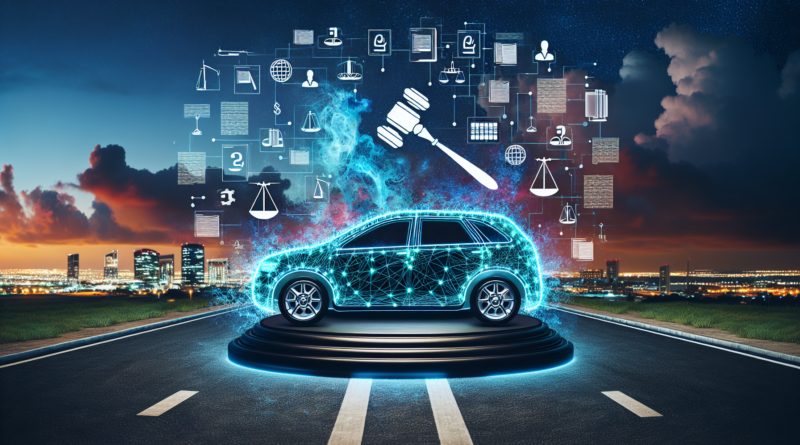Legal Challenges of Autonomous Vehicle Liability
Autonomous vehicles, often referred to as self-driving cars, are equipped with advanced sensors and software to navigate without human intervention. These vehicles promise to revolutionize transportation by enhancing safety, reducing traffic congestion, and providing mobility solutions for those unable to drive. However, the rise of autonomous vehicles brings forth complex legal challenges, particularly concerning liability in the event of accidents.
Traditional Liability Models
In conventional vehicles, liability typically falls on the driver in the event of an accident. This is based on the premise that the driver is responsible for controlling the vehicle and adhering to traffic laws. However, with autonomous vehicles, the role of the driver diminishes, raising questions about who should be held accountable when things go wrong. Should it be the manufacturer, the software developer, or the vehicle owner?
Shift in Liability Paradigms
The advent of autonomous vehicles necessitates a shift from traditional driver-centric liability models to new frameworks that consider the roles of manufacturers, software developers, and even data providers. This shift is crucial to address the unique challenges posed by self-driving technology.
One potential approach to addressing liability issues is through product liability laws. Under this framework, manufacturers could be held accountable for defects in the vehicle’s design, manufacturing, or software. This approach aligns with the notion that autonomous vehicles are products that should meet certain safety standards. However, determining defects in complex software systems can be challenging, requiring expert analysis and potentially lengthy legal battles.
The Role of Insurance
Insurance companies play a critical role in the autonomous vehicle landscape. As liability shifts from drivers to manufacturers and software developers, insurance models must adapt accordingly. Some experts suggest the development of new insurance products specifically tailored for autonomous vehicles, which could include coverage for software failures or cyber-attacks. Additionally, insurance companies may need to collaborate with manufacturers to assess risks and set premiums based on vehicle performance data.
Navigating the Legal Landscape
As autonomous vehicles become more prevalent, navigating the legal landscape will require collaboration between lawmakers, manufacturers, and insurers. Establishing clear liability frameworks and insurance models is essential to ensure the safe and widespread adoption of self-driving technology.
Different countries are approaching the issue of autonomous vehicle liability in various ways. For instance, the European Union is considering regulations that would hold manufacturers accountable for accidents caused by autonomous vehicles, while the United States is exploring a combination of federal and state-level regulations. These differing approaches highlight the need for international cooperation and standardization to address liability issues effectively.
Ethical Considerations
Beyond legal and insurance challenges, autonomous vehicles also raise ethical questions. In situations where an accident is unavoidable, how should the vehicle’s software prioritize the safety of passengers versus pedestrians? These ethical dilemmas complicate the liability landscape and require careful consideration by policymakers, manufacturers, and ethicists.
The Future of Autonomous Vehicle Liability
The future of autonomous vehicle liability will likely involve a combination of legal, insurance, and ethical frameworks. As technology evolves, so too must our approaches to accountability and safety. By addressing these challenges proactively, we can pave the way for a safer and more efficient transportation future.
The issue of liability for autonomous vehicles is a complex and evolving challenge. As self-driving technology advances, it is crucial to develop legal frameworks that address the unique aspects of these vehicles. By considering product liability, insurance models, international perspectives, and ethical considerations, we can create a comprehensive approach to ensure accountability and safety in the era of autonomous transportation.


